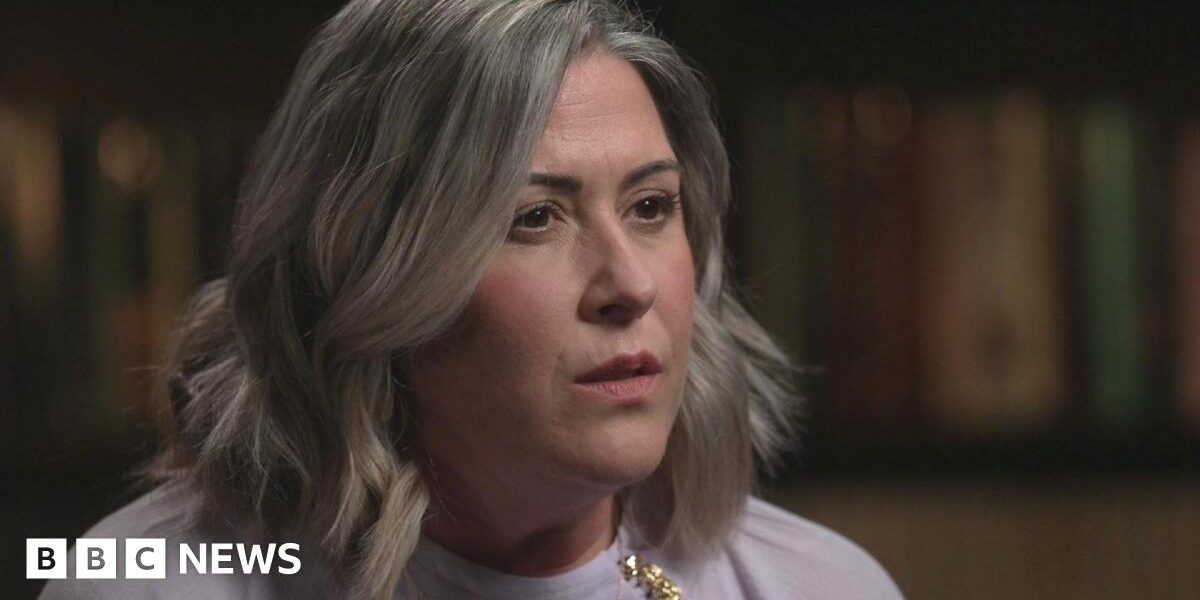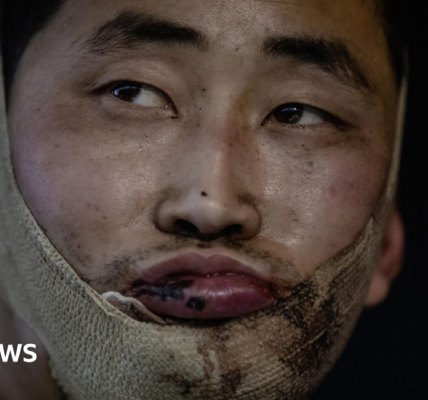In the days that followed Gisèle’s fateful phone call, Darian and her brothers, Florian and David, travelled to the south of France where their parents had been living to support their mother as she absorbed the news that – as Darian now puts it – her husband was “one of the worst sexual predators of the last 20 or 30 years”.
Soon afterwards, Darian herself was called in by police – and her world shattered again.
She was shown two photos they found on her father’s laptop. They showed an unconscious woman lying on a bed, wearing only a T-shirt and underwear.
At first, she couldn’t tell the woman was her. “I lived a dissociation effect. I had difficulties recognising myself from the start,” she says.
“Then the police officer said: ‘Look, you have the same brown mark on your cheek… it’s you.’ I looked at those two photos differently then… I was laying on my left side like my mother, in all her pictures.”
Darian says she is convinced her father abused and raped her too – something he has always denied, although he has offered conflicting explanations for the photos.
“I know that he drugged me, probably for sexual abuse. But I don’t have any evidence,” she says.
Unlike her mother’s case, there is no proof of what Pelicot may have done to Darian.
“And that’s the case for how many victims? They are not believed because there’s no evidence. They’re not listened to, not supported,” she says.
Soon after her father’s crimes came to light, Darian wrote a book.
I’ll Never Call Him Dad Again explores her family’s trauma.
It also delves deeper into the issue of chemical submission, in which the drugs typically used “come from the family’s medicine cabinet”.
“Painkillers, sedatives. It’s medication,” Darian says. As is the case for almost half of victims of chemical submission, she knew her abuser: the danger, she says, “is coming from the inside.”
She says that in the midst of the trauma of finding out she had been raped more than 200 times by different people, her mother Gisèle found it difficult to accept that her husband may have also assaulted their daughter.
“For a mum it’s difficult to integrate that all in one go,” she says.
Yet when Gisèle decided to open up the trial to the public and the media so as to expose what had been done to her by her husband and dozens of men, mother and daughter were in agreement: “I knew we went through something… horrible, but that we had to go through it with dignity and strength.”





